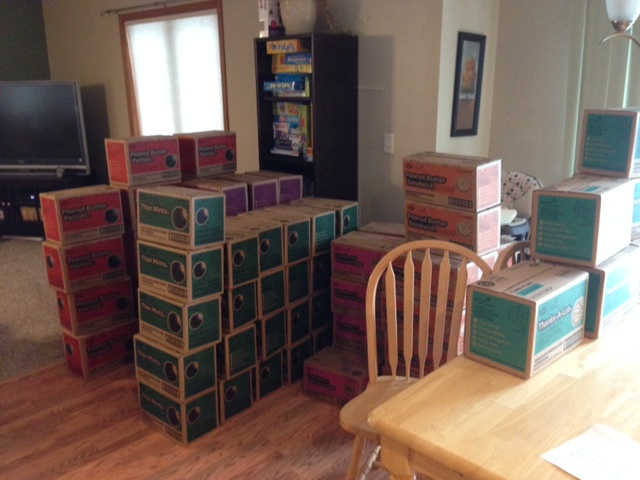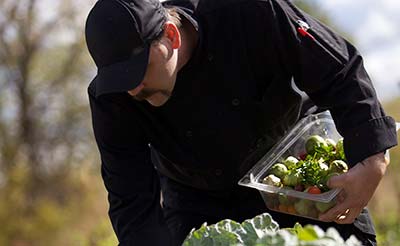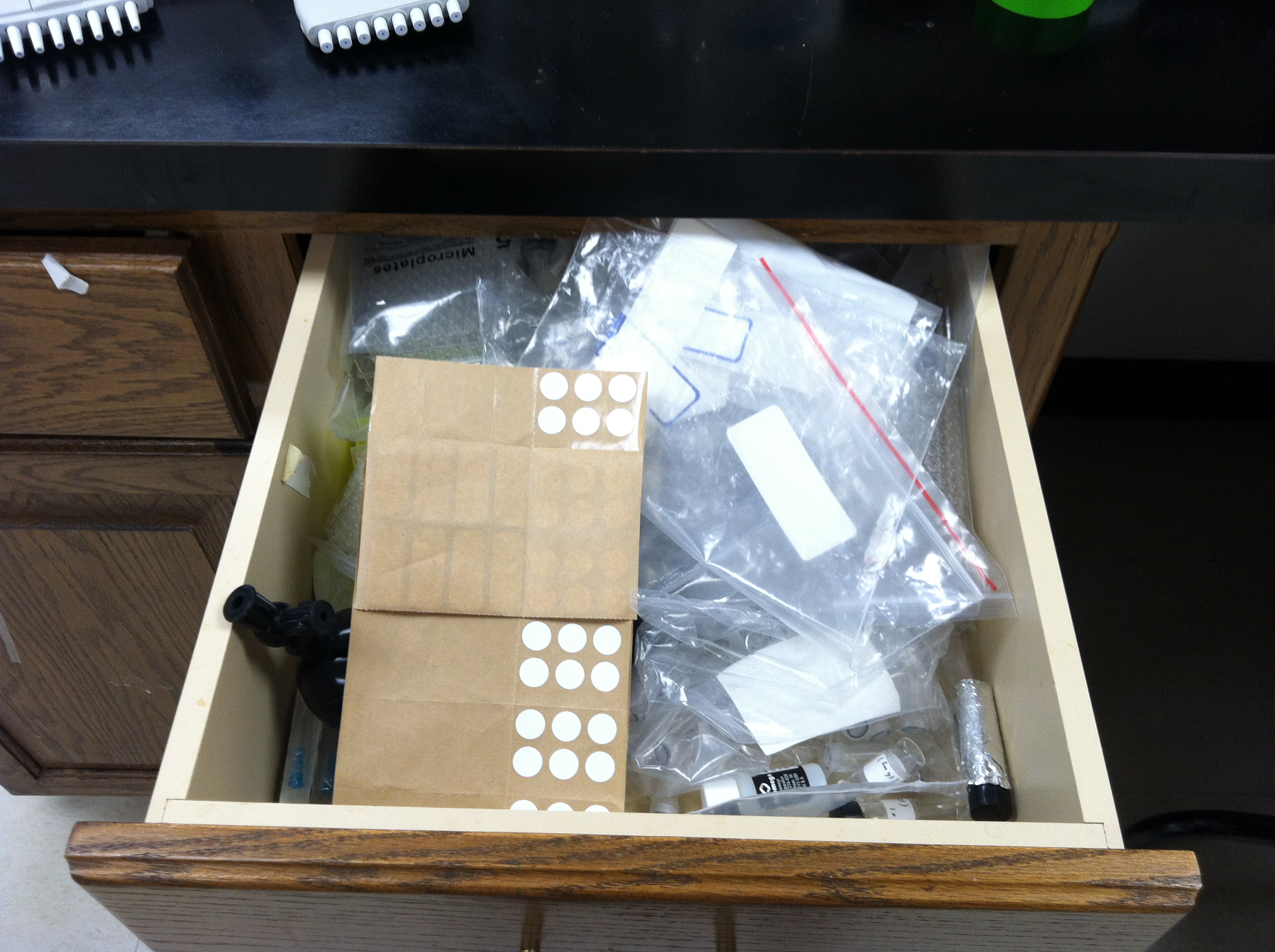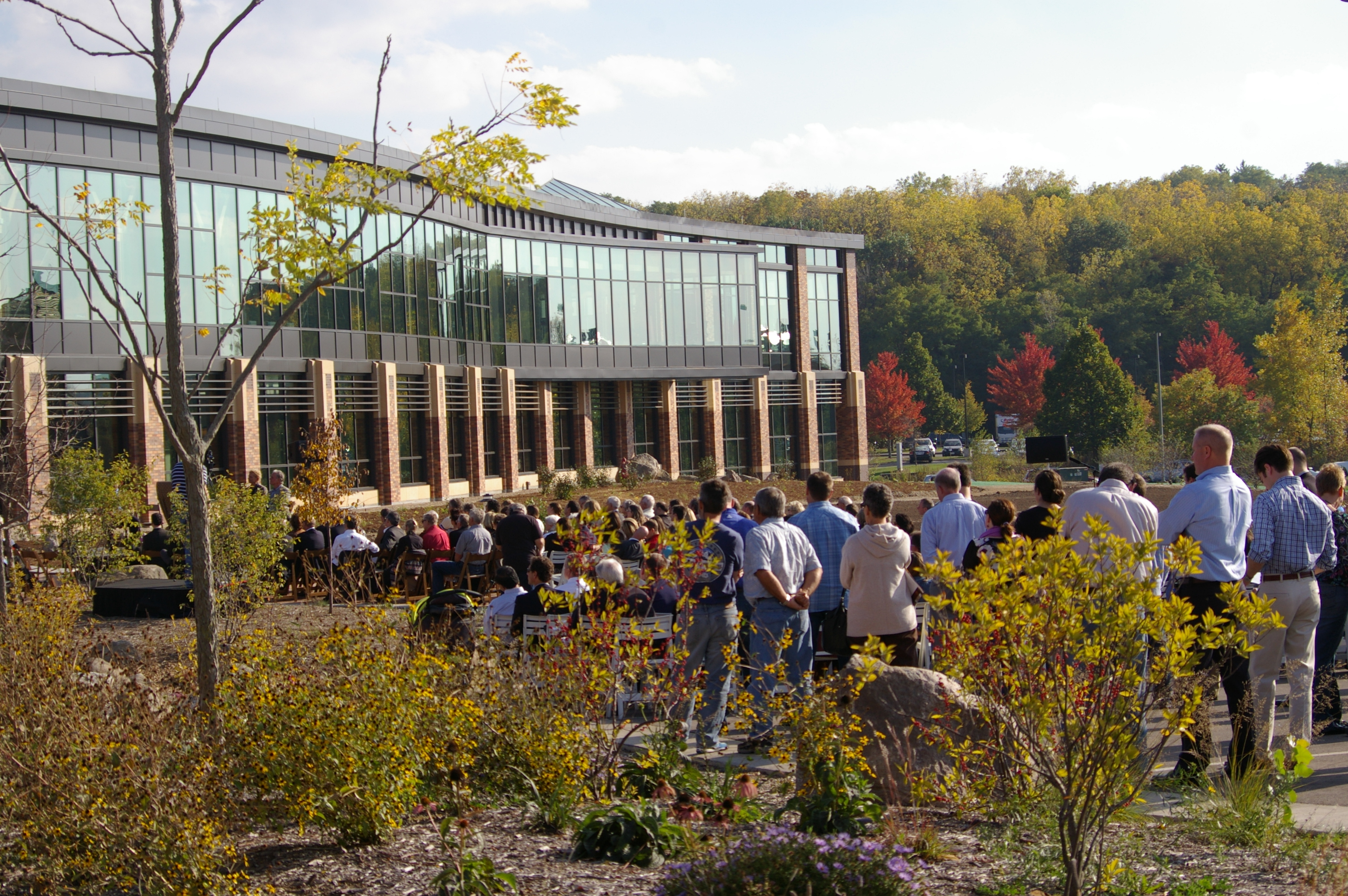As a fun followup to Wednesday’s blog, here is a cartoon for all you protein scientists out there.

IF you would like to see more science cartoons by Ed Himelblau, you can find them in the Cartoon Lab section of the Promega PubHub.
As a fun followup to Wednesday’s blog, here is a cartoon for all you protein scientists out there.

IF you would like to see more science cartoons by Ed Himelblau, you can find them in the Cartoon Lab section of the Promega PubHub.
As a boy, one of my favorite childhood books was without a doubt, Herman Melville’s Moby Dick. For those not familiar with the story, it tells of the obsessive quest of one Captain Ahab to kill a white whale in revenge for an attack that left him with a severed leg. The story is told by the character Ishamel who accompanies Ahab and provides the reader with a front row seat on the doomed saga of Ahab and his crew. After reading the book, I set myself the task of learning more about whales and how we can do more to protect the lives of these magnificent ‘leviathans of the deep’. My parents bought me Jacques Cousteau’s Whales one Christmas. From that moment on, my heart and mind were transfixed. This year I was privileged to see Gray whales for the first time, following their migratory path down the west coast of the United States. Together with a handful of other excited tourists, I went on a 3 hour cruise outside of San Diego bay, organized by the Scripps Institute Birch Aquarium. Below are several of the many pictures I took on that memorable day.

Continue reading “Grays On the Move: Whale Watching in San Diego”

Please believe me when I say this is the hardest thing I’ve done. Typing this sentence might as well be lifting a boulder, and the next could be even heavier. Before this, the hardest thing I’d done was say “good morning” to co-workers, and before that, it was simply getting out of bed.
Just about the only thing I find easy is going to bed, but sleeping is a different story. Every night I lie down, unsure if I’ll fall asleep within seconds and wake what seems like moments later, swatting aimlessly at my alarm clock, or if I’ll remain awake, tired beyond belief but some mysterious finger in the dyke preventing a flood of sleep from washing over me.
I’m one of the approximately 21 million people in the United States who suffer from major depression. Let me tell you, it’s kind of a bummer. Lying awake at night might sound terrible, but it’s the easiest thing in the world compared to writing a sentence, saying “hello”, smiling. I live each day negotiating a watery fog, often unsure what people tell me, confused about what comes next, and desperate for the energy to participate in the world.
This isn’t an essay asking for sympathy; receiving pity from others would only make me feel worse. Besides, as a function of suffering from depression, I’m convinced nobody is reading this, that nobody is going to read this. This essay is for me. Only by engaging and grappling with this disease in words and in actions can I ever hope to pin it to the ground.
 5. No one in your family bothers to ask you what you’re studying anymore.
5. No one in your family bothers to ask you what you’re studying anymore.
The longer you spend in a Ph.D. program the more opportunities your family has to ask you what you’re doing in school. No doubt, you’ve spent the first couple years of graduate school going to family functions and trying to explain to your grandma what a molecule is. She will eventually come up with an explanation of what you are doing that she can share with her friends. Her description of your work may or may not be correct, but she’s not going to bother trying to understand it anymore. “Good for your honey, you’re so smart!”
4. Your former life as a bartender or grocery store clerk starts to sound really appealing. Continue reading “5 Signs You’re Ready to Earn that Ph.D.”
I decided last year that I would be a troop leader for my daughter’s Girl Scout Daisy troop. I thought it would be a great way to spend some one-on-one time with her, while volunteering for a cause I believe in. It started off positive; I met with the other leader, we had all these great ideas for what we would do! This was going to be so fun! Well, time went on, and the meetings seemed longer and longer; the craft ideas were getting much less creative, and by the end of the year the girls were playing tag for the last 15 minutes of the meetings because we had run out of things to do. I realized that I really am not the best “traditional” troop leader, but I still wanted to be involved in a leader capactiy. I know! I will be the cookie coordinator for the Girl Scout cookie season! I can use the skills I am much better at (organization, metrics), and not have to be creative or crafty. Perfect!

We are two weeks into cookie season, and I would like to give the job back. I am completely obsessed with cookies. I think about them almost all day; I dream about them at night. I am placing cookie orders, counting cookies, schlepping cookies, EATING cookies. Here is a picture of my family room. This is what it looks like all the time. I have a “cookie spreadsheet”. I have nightmares that it will get accidentally deleted somehow, and that would throw my life into a tailspin. Continue reading “Confessions of a Cookie Mom”
Looking for last-minute gift ideas? Wondering what chemistry has to do with Valentine’s Day? The chemists of the American Chemical Society (ACS) have curated a web page called Valentine’s Day Chemistry that offers gift ideas (for example, make a crystal heart using pipe cleaners, borax and hot water), explains the chemistry behind chocolate and flowers, shows a video that equates chemical bonding to people interacting at a party and more. The links and videos offer something for everyone, whether you want to have fun with friends and family of all ages or just want to learn something new about chemistry.
Happy Valentine’s Day!

From time to time, we use the Promega Connections blog to tell you a little bit more about life here at Promega Corporation. For more than 40 years Promega has consistently integrated the values of corporate responsibility and sustainable business practices in all aspects of our corporate culture and activity; one of those aspects can be found in the Promega cafeterias. As an employee of Promega, one of the things I have considered a key perk is the wonderful menu offerings we have here at the Madison campus. The kitchens offer a varied and fun menu full of healthy choices, using local, seasonal foods as much as possible. The Promega Culinary Garden was covers more than an acre and allows us to grow many of our own vegetables and herbs as well as compost food waste.
Below is a short video highlighting the Culinary Garden Program
For information on other corporate responsibility and sustainable business practices at Promega Corporation, explore our Corporate Responsibility Web site.

Note: Compulsive hoarding is a very serious mental health condition that we have seen exploited, in recent years, on reality TV. I don’t mean to make light of that condition, but I do want to have a little fun here.
If you have ever walked through a research lab you have probably seen most of these symptoms piled on lab benches and consuming storage space.
 As the parent of school-age children, I have learned to dread that early morning call with the cheerful recorded voice that informs me that school has been canceled or delayed. Here in Wisconsin, these calls are almost always a result of inclement weather, and if we pay attention to the weather forecast, we typically know the night before that a delay or cancelation is a possibility. Every once and awhile though, that call comes unexpectedly. On those mornings, while our kids dance around like deranged snow-bound monkeys, my husband and I drag out phones and calendars and begin the process of deciding who will be snow-bound with the monkeys, and who will escape go to work. However, even these unexpected snow days can’t really be called a great surprise. Snow days are a geographic risk of living in an area that has snow several months out of the year. I wonder, though, how my family would react if we got a call announcing school would be closed for the day due to a venomous spider infestation.
As the parent of school-age children, I have learned to dread that early morning call with the cheerful recorded voice that informs me that school has been canceled or delayed. Here in Wisconsin, these calls are almost always a result of inclement weather, and if we pay attention to the weather forecast, we typically know the night before that a delay or cancelation is a possibility. Every once and awhile though, that call comes unexpectedly. On those mornings, while our kids dance around like deranged snow-bound monkeys, my husband and I drag out phones and calendars and begin the process of deciding who will be snow-bound with the monkeys, and who will escape go to work. However, even these unexpected snow days can’t really be called a great surprise. Snow days are a geographic risk of living in an area that has snow several months out of the year. I wonder, though, how my family would react if we got a call announcing school would be closed for the day due to a venomous spider infestation.
I know what you are thinking. This sounds like a bad horror movie; after all I am posting this on Halloween, a day associated (in the United States, at least) with all things creepy and crawly. Continue reading “School Will Be Closed Today—Due to Spiders”
At Promega we like to celebrate the good things, little and big, from the publication of a peer-reviewed paper from a customer or one of our scientists, to the completion of a dissertation defense, to the launch of an exciting new technology. Today we celebrate, along with our local Madison and our global scientific communities, the public opening of our new cGMP manufacturing facility, dedicated to serving customers who need molecular biology reagents for IVD assays.
We could not have asked for a more beautiful fall day for the events. We’ll be live blogging from the opening to share a little bit of the celebration with our Promega Connections community as well.
